You are here
Add new comment
Since March 7, 2013, clients of МЕТRОhypermarkets can buy halal beef manufactured by joint stock company “Kozyatinsky myasokombinat” (Kozyatin meat processing plant). This company, being the largest Ukrainian meat producer, launched production of meat by Shariah norms, to attract Ukrainian Muslims as clients and make “halal” beef easier available.
“Halal” products will be put on a separate counter so that they can be easily found by consumers. It’s expected that “halal” beef produced by “Kozyatinsky myasokombinat” will be offered for sale in МЕТRОhypermarkets across Ukraine.
Also, private entrepreneurs and legal entities can purchase “halal” beef for business purposes directly from the manufacturer.
Commission of the Shariah Committee impressed by cleanness and excellent hygienic standards
Mr. Wail Alami, director of the “Alraid” Center on Research and Certification of Halal , says: “I met representatives from “Kozyatinsky myasokombinat” as early as in autumn 2012. We told them about the requirements to be met by meat “halal” products, and they invited our Commission to the production site. Frankly speaking, I was impressed by cleanness and excellent hygienic standards”.
The Commission scrutinized the production process and issued recommendations on fixing several points preventing the plant from “halal” products manufacturing. The recommendations were fulfilled immediately, and the parties came to agreement with respect to certification and expert service for the production line “halal”.
Mr.Victor Kozlovsky, deputy-chairman of the administrative board and sales manager of “Kozyatinsky myasokombinat”, gives interview about this project
Mr.Kozlovsky, what was the reason behind your company’s interest toward manufacturing of meat by Shariah norms?
— Of course, search for new markets first and foremost. Basically, we are focused on the domestic market, although part of our “halal” products will be exported. Thus, we have already been contacted by representatives of a Russian company about possibility of “halal” beef supplies.
As we are still considering consumers’ responses on our offer, “halal” meat will be distiruted only in frozen form. We expect that more than 90 percent of our “halal” beef will be sold cooled.
Also, we expect to produce sausage, bangers, stuffing and semi-finished products that meet Shariah norms. In the forthcoming future we are going to submit for Mr.Alami’s consideration technical conditions for manufacturing and receipts for negotiation and recommended adjustments.
When do you plan to launch manufacturing of “halal” beef and where it can be bought?
— As cattle slaughtering by Shariah norms is still done once a week, our products will be distributed with exactly this periodicity. If the demand for “halal” beef is better than we expected, then we will readily increase its output.
Our “halal” products can be bought in METRO hypermarkets. Their administrations pledged to secure a separate counter for our “halal” products so that buyers had no need to look for it in non-halal meat.
The earliest supply is expected on March 18 and 19.
Meanwhile, we are open for cooperation with private entrepreneurs and legal entities wanting to purchase out “halal” meat for business purposes.
When a partner purchases 1 to 3 tones, shipment will be by his transport, when it’s more than 3 tones, they will be supplied by our automobiles.
It’s true that everyone in concerned with payment conditions. We have only few: preference to bank payment, and prepayment at the start of cooperation. If a person or an organization has long-time cooperation with us and proved to be a fair and honest partner, we have various programs for deferment of paymenton mutual consent.
On purchase issues, please, contact me, Viktor Kozlovsky, or Mr.Maxim Mysnyk, sales manager:
Phone: + 380 (4342) 2-22-42,
Fax: + 380 (4342) 2-11-29,
e-mail Secretary@kpp.org.ua.
Manufacturing of “halal” products involves additional production control. Areyouscaredbysuchprospect?
— Bynomeans! Quality control is perfectly organized in the company, and we have nothing to conceal.
Our meat processing plant has been operating more than 80 years now, as it was created in 1927. Because its technical facilities have been totally renovated in the past five years, now they meet the European standards of excellence. According to non-official statistics, we produce nearly 70 percent of the Ukrainian beef output.
Our products pass several stages of control, and we are checked by European rather than Ukrainian experts. Control starts as early as at the stage of selection of animals bred for slaughter. As the cattle that we buy is of the Ukrainian origin, we cooperate with Muslim farmers as well.
The biography of each animal is monitored since its birth date. It is given its personal number and the passport where all the information is entered: parents’ characteristics, illnesses, vaccination, analysis of enteric micro flora etc. Scale and periodicity of control is also involved.
One of them is “Hazard Analysis and Critical Control Points”. Hygienic conditions meet European standards that are higher than, say, American ones.
We produce bones, fillet, stuffing, and semi-finished products. Everything is put in МАР(Modified Atmosphere Package). It’s a package with modified atmosphere, when the air is pumped out and the gas is pumped in, which differs from the air only by absence of oxygen. So, foods preserve their form, texture and color with minimal handling (processing). The term of foods storage can be prolonged without adding chemical preservative substances or stabilizers. Absence of oxygen preserves meat from oxidation and prolongs its storage term in cooled form up to two weeks.

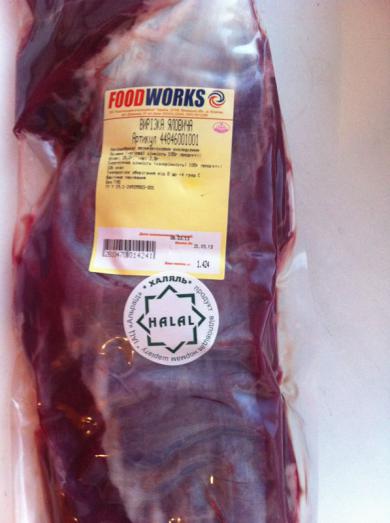








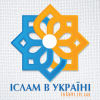
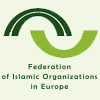




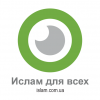
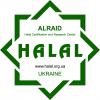
Recent comments